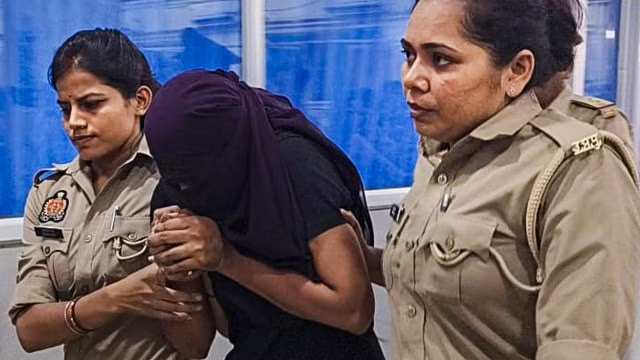The espionage case involving YouTuber Jyoti Malhotra has sparked intense legal and public scrutiny in India. With charges of communicating with Pakistani intelligence agents and violations under national security laws, her bail denial raises crucial questions about digital influence, international ties, and how new laws interact with emerging threats in a connected world.
YouTuber Jyoti Malhotra Denied Bail in Espionage Case: A Deep Dive Into Allegations & Legal Arguments
Arrest and Legal Proceedings
A formal court in Hisar, Haryana, on Wednesday dismissed the bail plea of YouTuber Jyoti Malhotra (33) who is accused of spying for Pakistan. The bail hearing followed a decision to extend her judicial custody until June 23 in a fresh blow to the social media personality charged with being in touch with Pakistani intelligence agents.
Jyoti was arrested from Hisar on May 17, 2025, following her questioning by security agencies. She was interrogated by the police for nine days before being sent to judicial custody on May 26. Her judicial remand was extended once again on June 9, via video conference in court.
Jyoti’s lawyer Kumar Mukesh applied for bail on June 11, submitting that the prosecution had not brought any “material evidence on record” to establish that his client was involved in espionage. But the court in the end held with the prosecution, refusing her bail on the grounds that the allegations – under the Official Secrets Act and the Bharatiya Nyaya Sanhita – are too serious.
The Charges and Legal Disputes
The FIR slapped on Jyoti has sections of BNS and even an OSA provision, which predates the Act of yore itself. These explicit charges against her are:
- Section 152 of BNS which replaces IPC Section 124A (sedition), although the latter remains suspended by the Supreme Court.
- Section 3 of the Official Secrets Act, which relates to spying.
- Section 5 of the Official Secrets Act regarding unauthorized communication of secret information.
“FIR was registered under section 152 of BNS which the incident happened in year 2023; when BNS did not come in force whilst IPC was in force,” Jyoti’s counsel contended before the court. He also argued that the Supreme Court has suspended Section 124A (sedition), so it is legally non-operational when the alleged offences took place. Accordingly, he argued, that the prosecution could not base its allegation on waging war against the state.
The defense also mentioned that the Hisar police had acknowledged in a press release that no secret military, defense-related or policy-related documents were discovered in Jyoti’s possession. Based on this, Defense Attorneys filed for the chargeable admission of espionage to be dismissed for lack of evidence.
No Personal Data, But Suspicious Contacts
Although no physical sensitive information was extracted from her, police said she was communicating with people she knew to be Pakistani intelligence agents. A key actor in the case is Ehsan-ur-Rahim, also known as Danish, a staff member at the Pakistani High Commission in India.
The police suspected Jyoti had been in touch with Danish from November 2023. The matter got serious after Danish was deported from India on May 13 for allegedly engaging in espionage. Indian agencies suspect that Pakistani spies were trying to groom Jyoti into a long time asset. They also say that her intense and protracted contact with Danish supports the espionage theory.
So far the probe has not established that Jyoti accessed classified documents or transmitted sensitive state secrets. But officials say even helping foreign agents or being party to their activities can be a serious breach of national security under the Official Secrets Act.
Background and Personal Life
Jyoti Malhotra, born and brought up in Hisar, Haryana, is the daughter of Harish Malhotra and a granddaughter to her grandparents. On graduating she first worked at a private company in Gurgaon, later switching career as a travel blogger and YouTuber. Her content was mostly travel experiences, lifestyle and vlogging.
Her defense stated that her history and whereabouts had no connection to politics, military, or any official secrets that should make the espionage charge against her irrelevant. They also submitted that her visit to the Pakistani High Commission in 2023, the wisdom of which was highly questionable, was made at a time when such visits were not prohibited by the law in so many words.
A Thicket of Legal and Political Terrain
The defence counsel also challenged that the FIR was registered on the sole statement of Jyoti during enquiry on May 15. However, they maintained, an FIR lodged on the basis of a suspect’s statement is jurisprudentially defective and has no evidentiary value.
The defence also referred to the case of Harkirat Singh, a member of the Haryana Gurdwara Prabandhak Committee, who was also questioned in the matter. He was subsequently released; Jyoti was not. Defense counsel also inquired why Singh was released if the charges stemmed from the same incident.
In legal terms, the case rests on the interpretation of espionage laws and more specifically the Official Secrets Act, whose scope and definitions have often been slammed as ambiguous. The presence of the BNS chapter in place of sedition laws, particularly in the backdrop of the suspension of the former by the Supreme Court, complicates the matter further.
The Pahalgam Terror Attack Connection
One of the main factors that exacerbated the examination of Jyoti’s work was her alleged contact with some of the suspects following the Pahalgam terror strike, in which 26 Indian tourists were killed. There is no clear link between Jyoti and the attack but her communication with Pakistani handlers had gone up during the period, investigators said.
She has not yet been charged for the Pahalgam attack, but the timing of when she got in touch with Danish appears to be the basis for speculation about her motivation and coordination.
Also read, Jyoti Malhotra: From Travel Vlogger to Espionage Accused – A Deep Dive into the Explosive Charges
Political and Public Reactions
The case has attracted wide media and public interest, as views have been split. Some people think Jyoti is a victim of overzealousness of investigating agencies, others say that even indirect connections with hostile foreign entities need to be investigated seriously.
The political class has been, for the most part, mute, or careful which probably isn’t surprising in such matters of espionage and national security. Legal experts, however, have questioned the procedural handling of the FIR, the retroactive application of new laws and the evidence available on the record.
Where the Case Stands Now
The bail plea rejected and her judicial custody extended, Jyoti is now in custody as the police probe the case. The prosecution is anticipated to submit a detailed charge sheet in upcoming weeks and the direction of the trial will be at that time. If evidence is not being brought forward, then the case may fizzle, but if fresh evidence does emerge, the case could establish a precedent for how digital influencers and private citizens are prosecuted under espionage laws.
The Big Picture: Social Media and Espionage
The case has also raised alarms in national security circles about the potential for foreign espionage through social media platforms and their influencers. As digital ties grow and platforms like YouTube and Instagram knit together people’s lives at ever-younger ages, espionage has escaped traditional bonds of secrecy, and the spy collector’s job turns less on secret documents and more on leverage and influence, often the kind you can run on a smartphone.
Investigators believe that Jyoti may have been in the early stage of being groomed to be an “asset” – the intelligence community parlance for an individual who may later be used to gather or transmit sensitive information, even without knowing it. Indeed, such an option cannot be ruled out regardless of the lack of physical evidence, according to security analysts who have experience of counter-espionage activities.
Conclusion
The case of Jyoti Malhotra is also indicative of the new realities that police and judicial systems grapple with in addressing espionage allegations in the age of the Internet. There is little hard documentary evidence, but rather damning digital footprints and contacts with known foreign assets, so this is as much a case about inferring intent as it is about what did or did not happen.
The ruling to refuse bail indicates a conservative stance, perhaps influenced by the severity of the charges and the geopolitical tension more generally. Whether Jyoti is an enemy spy or a victim of circumstantial suspicion is yet to be established, but the legal and wider societal repercussions of her case will undoubtedly be felt beyond the courtroom.
FAQs
Who is Jyoti Malhotra?
Jyoti Malhotra is a 33-year-old YouTuber and travel blogger from Hisar, Haryana. She was arrested in May 2025 on charges of espionage for allegedly being in contact with Pakistani intelligence agents.
What are the charges against her?
She has been charged under Section 152 of the Bharatiya Nyaya Sanhita, and Sections 3 and 5 of the Official Secrets Act, relating to spying and unauthorized communication of secret information.
What evidence has been found?
Police have stated that no military or sensitive documents were found in her possession. However, they allege she was in contact with known Pakistani intelligence agents, including Danish from the Pakistani High Commission.
Why was her bail denied?
The court denied bail citing the serious nature of the charges and ongoing investigation, despite arguments from her counsel that the FIR lacks substantive material evidence.
What happens next in the case?
The prosecution is expected to file a detailed charge sheet. Depending on the evidence presented, the case may proceed to trial or potentially be dismissed.
Reference
Hisar court denies bail to YouTuber Jyoti Malhotra
Stay updated with all the latest news and insights – News Of US






